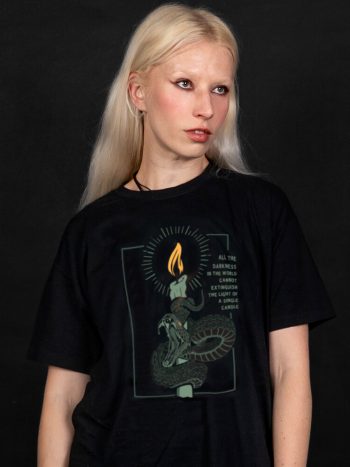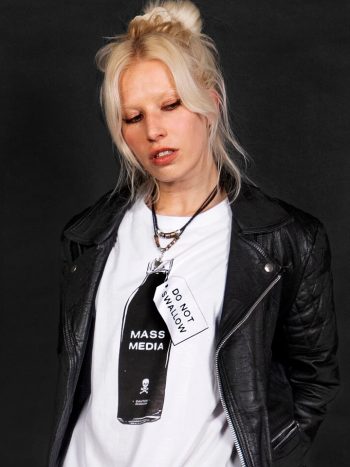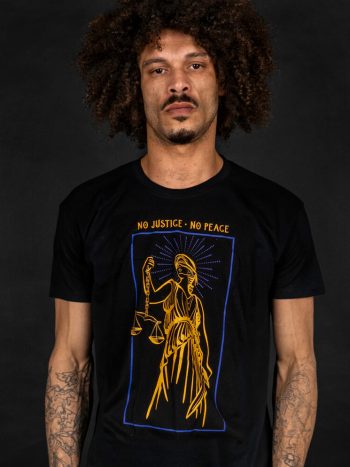EVERYTHING YOU NEED TO KNOW ABOUT ETHICAL FASHION CERTIFICATIONS
Sustainable fashion jargon can be really vague and confusing. Many ethical fashion terms leave a whole lot of room for guess work, and open up the possibility for greenwashing on the part of both big and indie clothing brands that are, in fact, only green and/or ethical, on paper. To help you out, we’ve compiled a handy list of the most common ethical clothing certifications found on care labels.
EARTH-FRIENDLY CERTIFICATIONS
The fashion industry is responsible for 10% of global greenhouse gas emissions, almost 20% of global waste water, as well as 24% of insecticides and 11% of pesticides (although the fashion industry itself uses only 3% of Earth’s arable land). This is all encompassed within the industry’s long supply chains and energy-intensive production practices.
This makes reducing pollution of critical importance, and there are growing initiatives being explored in this direction. For example, it takes almost 3,000 liters of water to make one cotton shirt, but methods are being developed that will allow clothes to be dyed without using any water.
In addition, processes are currently being trialed wherein fibers can be broken down into their original chemical components and then re-spun into different fibers to make another garment of the same quality, meaning that the reliance on newly-made fibers could be drastically reduced. Some companies are also creating new materials, such as leather made from orange and grape skins, which will prevent the cruel treatment of animals in producing traditional leather.
Yet arguably waste is the biggest problem facing the fashion industry. More clothes than ever are being produced, but more than ever are also being thrown away; in the United States alone, the total amount of garments discarded every year is equal to the weight of the Empire State Building. Previous practices of using landfills and sending second-hand clothes to the developing world are simply not sustainable.

OEKO TEX 100
The textile industry is responsible for 10% of greenhouse gas emissions, hence wearing clothes that can cause potential damage to our surroundings and ecosystem is something we should be concerned about. Not just for our future but for the future mankind as the earth is a shared habitat. If you find these certifications in an outlet then give yourself a pat on the back because you are making the right choice.
ALLRIOT t-shirts ar OEKO TEX 100 certified.

CRADLE 2 CRADLE
Cradle 2 Cradle awards globally-recognized certification to companies, businesses, and brands that produce sustainable products for the circular economy, which means that certified products will be recycled after they have served their purpose.
The focus of the initiative is on the organic health of a garment’s material, its production efficiency, and the social responsibility of the manufacturer.

USDA ORGANIC
The United States Department of Agriculture (USDA) Organic seal is awarded to brands that use natural fibers instead of their synthetic equivalents, which are often toxic and, therefore, harmful to the environment.
This seal can be found on eco-friendly t-shirts that have been produced by using raw materials that were produced using cotton free from synthetic pesticides, GMOs and fertilizers.
ETHICAL MANUFACTURING CERTIFICATIONS
Ethical manufacturing refers to the holistic process of creating goods without compromising the health and safety of those involved, as well as the environment. From production to the consumer, this certificate ensures that everyone involved was taken care of according to set standards which include the following:
- Employees are treated with respect
- Employees are paid a fair wage
- Employees work for reasonable hours and from their free will.
- Employees are provided with a safe working environment.
Below are listed all the certificates issued to manufacturers who have been proven to treat their employees fairly and operate in a responsible and humanitarian manner.

WRAP
Worldwide Responsible Accredited Production is a not-for-profit organization that promotes the safe, lawful and humane manufacturing of goods throughout the world. As with its counterparts, WRAP certification is given to businesses and organizations that are able to prove that they serve their human capital with the best possible working conditions, while abiding by the standard operating procedures set by the ILO.
WRAP principles are based on both international work standards and local laws that are a culmination of human resource management, health, safety and environmental practices, along with legal compliance with respect to import, export and customs legislation.
ALLRIOT political clothing is WRAP certified.

FAIRWEAR FOUNDATION
As with the ETI, membership in the Fairwear Foundation is granted to companies that work towards providing a safe working environment for their labor force; however, membership is only given if a brand is able to show that it has closely followed a series of steps based on the U.N Declaration on Human Rights.
To become a member of the Fairwear Foundation, companies must show that their workers’ employment has been chosen freely and that they are guaranteed the right unionize; all employees must have the right to equal opportunities; children under the age of 15 are not employed; and collective bargaining, a living wage, a safe environment and regular employment with reasonable hours of work, are all ensured.
In short, it focuses on the physical factors pertaining to working conditions, along with the human factors of production. The Fairwear Foundation is based in Europe.
Our premium quality unisex cotton t-shirts are Fair Wear Certified (in Europe).

FAIR TRADE
Fair Trade bestows Fair Trade Certification on products that are made when worker safety and fair pay has been guaranteed and proven, allowing consumers to identify brands and goods that strictly adhere to international labor rights.
Fair Trade USA empowers and uplifts labor communities by ensuring they work in safe conditions while also helping to conserve the environment they are working in: the organization is devoted to helping farmers pursue more environmentally-friendly practices, such as enhancing soil by helping to apply sustainable irrigation methods; reporting on the current benefits and future goals for ecosystems and ways of reducing carbon emissions; minimizing the use of agrochemicals and prohibiting the use of GMOs; and developing safe management plans for pests and waste through farmer education.

ETHICAL TRADING INITIATIVE
The ethical trading initiative was launched after the neglect of International Labor Laws by the heavyweight global fashion industry in the 1990s. According to the International Labor Organization, the prime mission of ETI is to protect workers’ rights in the global supply chain.
Companies that are a part of this initiative pledge to strive towards making ethical improvements in their operations and practices; current high-street companies currently involved in the ETI include H&M and the Body Shop.
VEGAN-FRIENDLY CERTIFICATIONS
‘Vegan friendly’ is not a label that is exclusively applied to food; clothing, too, can be vegan friendly. For a product to earn this title, the clothes, shoes or accessories must have been created from material that was not extracted from an animal. Below are the certifications that can be found on Vegan Friendly clothing.

PETA APROVED VEGAN
PETA is a US-based organization that advocates for animal rights and provides certification to individual products and companies that contain no animal-sourced or derived components; garments made from leather, fur, wool, or any type of skin are, of course, ineligible. Brands such as Gunas, Matt & Nat, and Native Shoes are PETA approved.

VEGAN SOCIETY
A sunflower logo on a product denotes approval from the Vegan Society, a UK-based charity, and means that the product is made from vegan-only derivatives, with no animal product or by-product included in its composition.

ECOCERT
EcoCert started in France and has since expanded globally. An EcoCert certificate ensures that any textiles used are made with organically-grown materials that meet Organic Content Standards. EcoCert also evaluates the production of organic agricultural products (such as organic cotton, linen or hemp) and helps farmers to move towards organic methods of farming.
CARBON FOOTPRINT CERTIFICATIONS
Measuring and evaluating an organization’s carbon footprint entails tracking the amount of damage its production activities do to the environment. Effective carbon management involves applying different methods a business can use to reduce their emissions and play their part in conserving their environment. Participant companies themselves profit through the efficient use of their resources, as well as receiving receive public approval for their socially responsible practices.

NSF INTERNATIONAL
The National Sanitation Foundation, also known as NSF international, is an organization that issues third-party certification and ensures human and environmental safety across different industries. Its certificates are given to clothing manufacturers when they abide by their environment-centric codes and principles.

CLIMATE BENEFICIAL
Livestock (sheep and cows in particular) are responsible for producing most of the world’s greenhouse gases through grazing and the excretion of waste from their bodies. Climate Beneficial wool comes from animals that are raised in such a way that they do not emit carbon. This project is currently centered on wool but soon it will expand to other animal-derived materials.
At present, Climate Beneficial is only active in the United States, specifically in California, where farmers, weaver and mill owners have been the principle recipients of Climate Beneficial certification. Anything bought in California with a Climate Beneficial stamp shows that the product was created using methods that curtailed carbon emissions.

ROC
ROC is the acronym for Regenerative Organic Certified, a new certification award that is still in the testing stage in the US. ROC certification goes beyond the organic manufacturing of goods; instead, it is a holistic agriculture award that can only be awarded when a company ensures the welfare of animals used in its products’ production, the fair treatment of farmers and workers, and the pursuit of robust initiatives for soil health and land management.
BUSINESS SET-UP
The following certifications are given to businesses that are trying to provide a sustainable environment for people to work in while also producing environmentally-friendly goods. These awards encompass entire business models and not just a ‘green range’ or ‘green products’. Companies that make use of environmentally efficient methods of production are awarded these certificates; heavyweight brands given certification of this kind include Adidas and Ben & Jerry’s, amongst many others.

B-CORPORATIONS
A B Corp certification is awarded to companies that pledge to consider the impact of their decisions on their workers, customers, suppliers, community, and the environment; after B Corp status is bestowed on a business, it is legally required to follow B Corporation initiatives and best practices.

ECO-AGE
Eco Age is a London-based consultancy that certifies fashion brands that commit to the best ethical social and environmental practices. A company that wishes to become certified by Eco Age needs to prove that they are promoting and regulating fair work, being inclusive, and managing environmental factors efficiently.

BLUESIGN
Bluesign is an award given to textile manufacturers that ensure their products are environmentally-friendly by using internationally-approved methods. Bluesign certification takes into account everything that is used in the production of fabric, from chemicals to dye, to the amount of water being used to manufacture each yarn of fabric and the level of toxicity each dye carries, as well as the health of the company’s employees.

SOCIAL ENTERPRISE
A social enterprise or social business is defined as a business that has specific social objectives that serve its primary purpose. Social enterprises seek to maximize profits while maximizing benefits to society and the environment. Their profits are principally used to fund social programs.





















